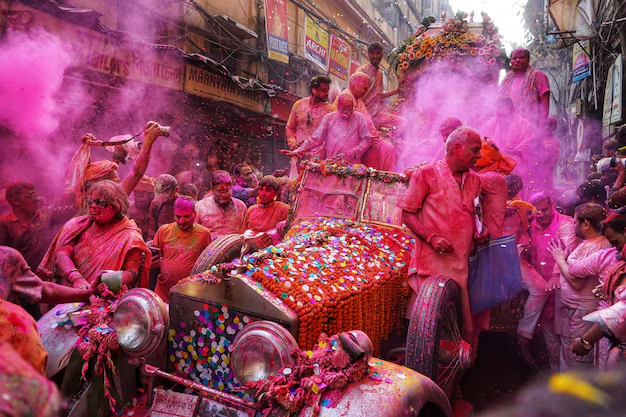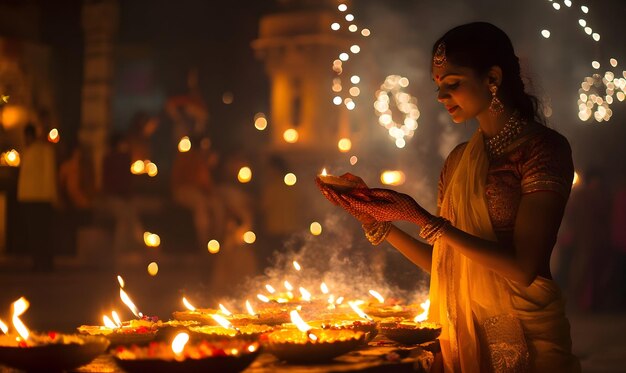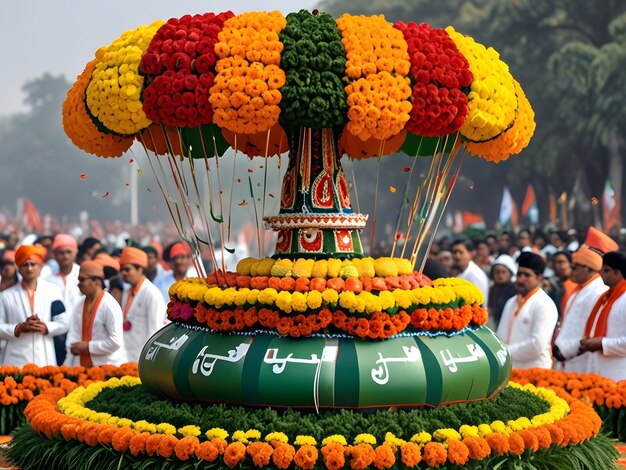
Festivals have long been an integral part of cultures around the world, serving as a means to celebrate traditions, bring communities together, and create shared experiences. Whether celebrating religious events, historical milestones, or seasonal changes, festivals have evolved over centuries to reflect the unique values and customs of different societies. However, as the world continues to change due to advances in technology, shifts in social dynamics, and environmental concerns, the future of festivals is likely to look very different from what we’ve known in the past.
In this article, we’ll explore how festivals are adapting to the challenges and opportunities of the modern world, and how they might continue to evolve in the years to come.
The Digital Transformation of Festivals
One of the most significant changes in the way festivals are experienced today is the integration of digital technology. The rise of the internet, social media, and streaming platforms has given festivals a global reach that was once unimaginable. Music festivals like Coachella and Glastonbury now live-stream performances to millions of people around the world, allowing fans who can’t attend in person to enjoy the event in real time. Virtual and hybrid festivals, which combine in-person and online components, have become increasingly popular, especially in the wake of the COVID-19 pandemic.
In the future, technology will continue to play a major role in shaping the festival experience. Augmented reality (AR) and virtual reality (VR) could provide immersive environments for attendees, allowing them to experience festivals in entirely new ways, from attending a concert in a virtual space to interacting with digital art installations. Additionally, technology will allow for greater personalization of festival experiences, with apps and AI curating schedules, helping attendees navigate large crowds, and offering tailored recommendations based on individual preferences.
Environmental Concerns and Sustainability
As awareness of climate change and environmental degradation grows, sustainability will be a major focus for the future of festivals. Traditional festivals often create significant waste through disposable food containers, plastic decorations, and transportation emissions from attendees traveling long distances. However, many festivals are already taking steps to reduce their environmental impact, and this trend will likely accelerate.
Festivals of the future will prioritize sustainability in every aspect of their planning. From implementing zero-waste policies to reducing the carbon footprint through eco-friendly transportation options, festivals will aim to minimize their environmental impact. Some festivals are already adopting practices like providing reusable cups, offering plant-based food options, and using renewable energy sources for stages and lighting. In addition, some festival organizers are working with local communities to plant trees or offset carbon emissions, ensuring that the event’s legacy is positive for the environment.
As environmental concerns continue to rise, we can expect future festivals to become even more eco-conscious, with a focus on using biodegradable materials, promoting sustainable tourism, and implementing eco-friendly technologies, such as solar-powered stages and waste-to-energy initiatives.
Inclusivity and Accessibility
The future of festivals will also be defined by a greater emphasis on inclusivity and accessibility. Traditionally, many festivals have been designed with specific demographics in mind, often excluding certain groups based on factors like age, ability, or socio-economic status. However, as society becomes more aware of the need for diversity and representation, festivals are making more intentional efforts to be inclusive and accessible to all.
Future festivals will strive to create welcoming spaces for people of all backgrounds, abilities, and identities. This means offering more affordable ticket options, providing services for individuals with disabilities, and ensuring that diverse voices are represented in lineups and programming. For example, music festivals may have sign language interpreters for hearing-impaired attendees or provide sensory-friendly spaces for individuals with autism. Additionally, many festivals will continue to embrace inclusivity by expanding programming to reflect a broader range of cultures, genres, and experiences.
As the concept of accessibility evolves, future festivals may also adapt to cater to an increasingly diverse range of digital needs, offering events that are designed for online or hybrid participation, and making use of technologies like live-captioning, streaming platforms, and translation services to further expand accessibility.
Cultural Preservation and Adaptation
While festivals continue to evolve, they also play an important role in preserving cultural traditions. Festivals are often deeply rooted in history, religion, or folklore, and provide an opportunity to pass down rituals, stories, and customs to future generations. However, as society becomes more interconnected and globalized, many traditional festivals are adapting to remain relevant in today’s world.
In some cases, the future of festivals may involve a hybridization of old and new traditions. For example, ancient religious ceremonies may be adapted to reflect modern sensibilities, with a greater focus on environmentalism or social justice. At the same time, global festivals may blend cultural practices from different regions, creating new, hybrid experiences that reflect the interconnected nature of the modern world.
For instance, Chinese New Year, a traditional cultural celebration, has become a global event, celebrated in major cities around the world with parades, performances, and public festivities. Similarly, festivals like Diwali and Carnival have evolved into global celebrations that maintain their cultural significance while embracing elements from other cultures, music genres, and art forms.
The Role of Experience in Festival Design
As people increasingly seek meaningful, immersive experiences, the future of festivals will place a stronger emphasis on providing attendees with unique and unforgettable encounters. In addition to live music and performances, future festivals will integrate interactive elements such as art installations, experiential exhibits, and participatory workshops, allowing festival-goers to engage with the event in a more personal and creative way.
For example, some festivals may feature multisensory experiences, combining sight, sound, smell, and touch to create fully immersive environments. Others may focus on fostering deeper connections by offering opportunities for attendees to engage with the local community, learn new skills, or collaborate on creative projects. By prioritizing meaningful, hands-on experiences, festivals of the future will become more than just entertainment—they will serve as platforms for personal growth, cultural exchange, and community-building.
The Impact of Globalization and Virtual Festivals
In an increasingly globalized world, festivals have become platforms for sharing cultural expressions and uniting people from diverse backgrounds. The growth of global connectivity, facilitated by social media and the internet, has enabled festivals to reach a wider audience, allowing people to participate in events from across the globe. Virtual festivals have exploded in popularity during the pandemic, and as technology continues to improve, virtual festivals will likely become an integral part of the festival landscape.
The future of festivals may see an increase in fully virtual or hybrid festivals, where attendees can participate from anywhere in the world. These virtual festivals could include live-streamed performances, interactive workshops, and digital networking opportunities, allowing people to experience festivals without geographical limitations. This will create a new kind of festival experience, where cultural exchange is enhanced and expanded beyond physical boundaries.
Conclusion
The future of festivals is one that blends tradition with innovation, sustainability with creativity, and inclusivity with global connectivity. While the core purpose of festivals—to bring people together in celebration—will remain the same, the way they are experienced, celebrated, and organized will continue to evolve to meet the demands of a changing world. From virtual and hybrid formats to more sustainable practices and greater emphasis on diversity and accessibility, the future of festivals will be defined by adaptability, innovation, and an ongoing commitment to creating meaningful, immersive experiences for all.
As we look forward to the next generation of festivals, one thing is certain: these cultural events will continue to unite us, celebrate our differences, and shape the social fabric of our communities for years to come.



